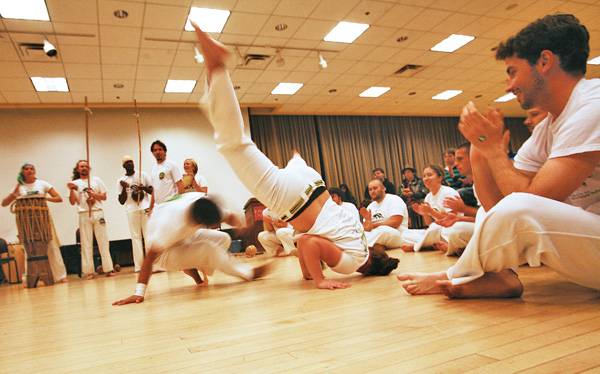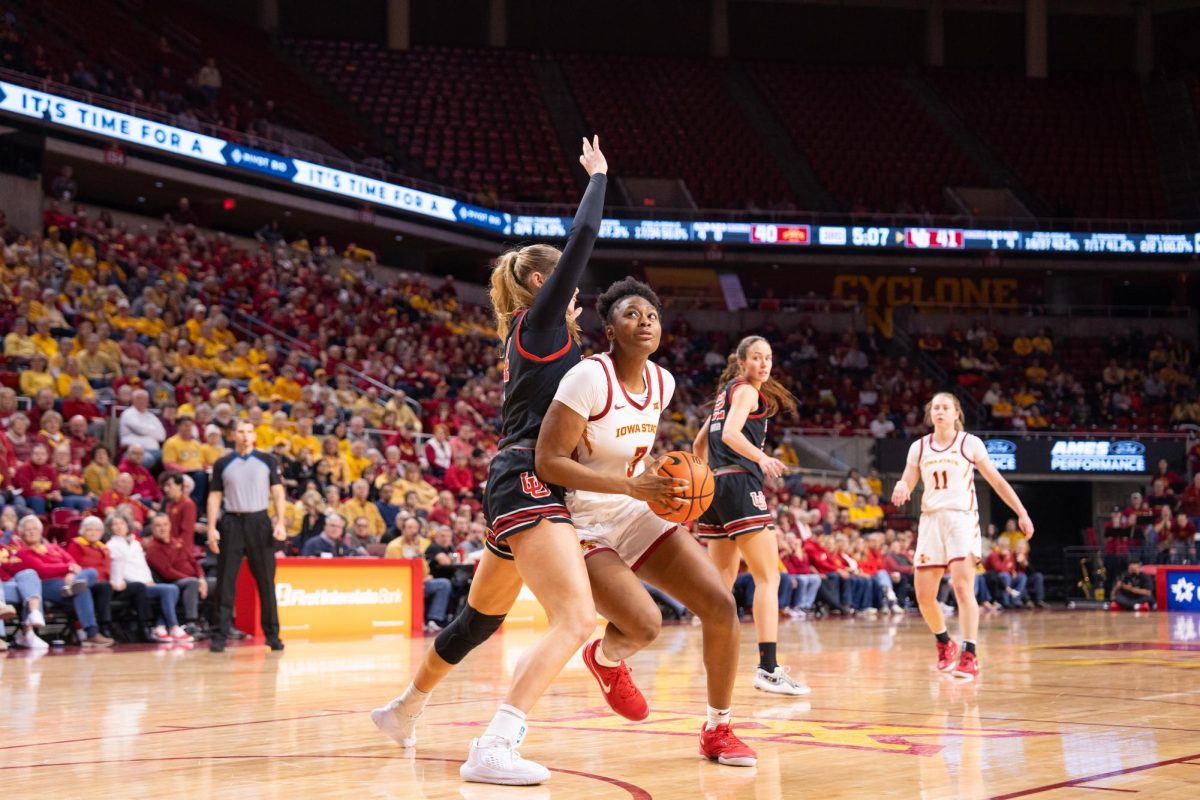‘Martial arts disguised as dance’

Cord‹o de Ouro Capoeira of Ames, performs at South Ball Room of Memorial Union, Wednesday evening. The Brazilian Capoeira Dance is part of ISC’s International Week event. Photo: Jay Bai/Iowa State Daily
November 11, 2009
A troupe from Cedar Falls and Des Moines performed the Brazilian martial art Capoiera to celebrate International Week Wednesday night.
In the Sun Room of the Memorial Union, students gathered to watch martial artists demonstrate Capoiera, a form of martial arts that incorporates dancing, song and music.
Pedro Zogaib, professor at the University of Northern Iowa, led the event. He explained the intention of the group is to expose people to Brazilian culture.
Capoiera is a form of martial arts that is disguised as dance. It was started in Brazil by African slaves as a way to train the mind and body in preparation to over throw their Portuguese oppressor. They came from diverse areas of Africa and were often enemies. Once in Brazil, they were able to come together through Capoiera in order to fight their oppressor.
The group performed several different dances for a diverse audience of around 50 people.
Later, all willing participants gathered in a circle to learn a dance called Maculele that involves hitting sticks together with the beat of the music while performing a sequence of steps. Children, middle-aged men and women and students took turns cutting through the circle in pairs, dancing with whomever happened to be next to them.
Dhruv Kar, senior in industrial engineering, attended the event. Although he hadn’t really heard of Capoeira before attending, he said it wasn’t hard to participate “Everyone was in the same position so I didn’t feel too awkward,” he said.
Rebecca Schlevgei-Valadao runs a Des Moines Capoiera group with her husband. She said her favorite aspect of the art is its ability to bring a unique variety of people together.
“You don’t have to be Brazilian to play Capoeira, you don’t have to be a ceritan size. It brings all people together. It creates a family,” Schlevgei-Valadao said.
Schlevgei-Valadao started practicing Capoeira at Northern Iowa. Eventually they traveled to Brazil where she met her husband who moved to Des Moines years ago.
“Our group in Des Moines is about bringing about cultural awareness, enjoying and understanding one part of Brazilian culture.” Schlevgei-Valadao said this cultural awareness is important because Iowans live in a diverse world.
“Capoiera helps you tolerate and accept people, makes you challenge any oppressor you have. That oppressor could be society, it could be your current weight, it could be tight muscles.”
Doug Tanque, a member of the Capoeira group in Cedar Falls, has been practicing Capoeira for four and a half years. Taque said it is the completeness of Capoeira that drew him into the sport.
“I remember a quote from one of the fathers of modern Capoiera. He said Capoeira is all that your mouth can eat. This struck a chord with me. I started seeing everything that’s involved,” he said.
Tanque said he can apply what he learns in Capoeira to life and what he learns in life to Capoeira.
Anyone interested in starting a Capoeira club at Iowa State should contact the Brazilian Portugese Association on campus. More information about Capoeira in Iowa can be found at www.rootswellnesscenter.com.






